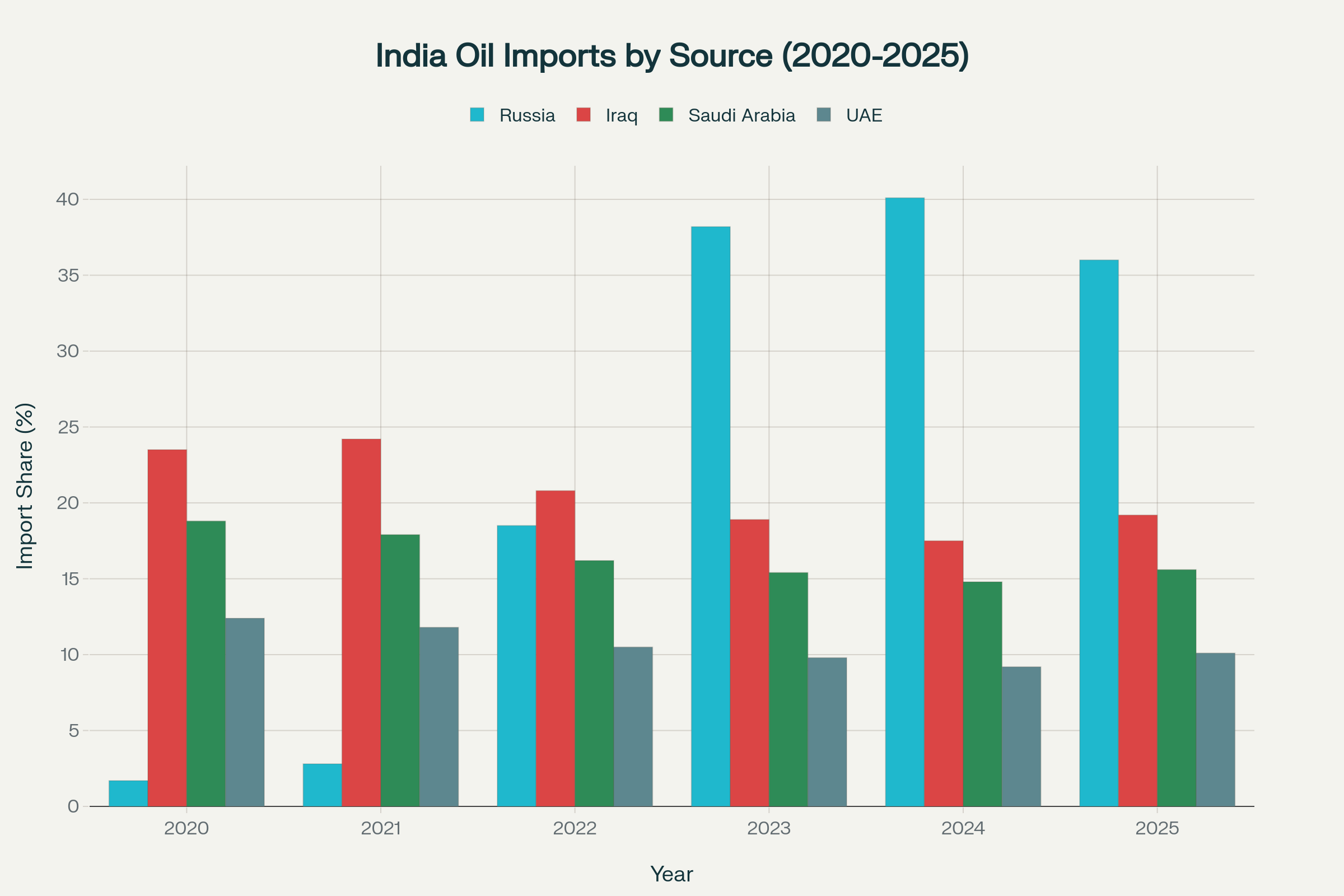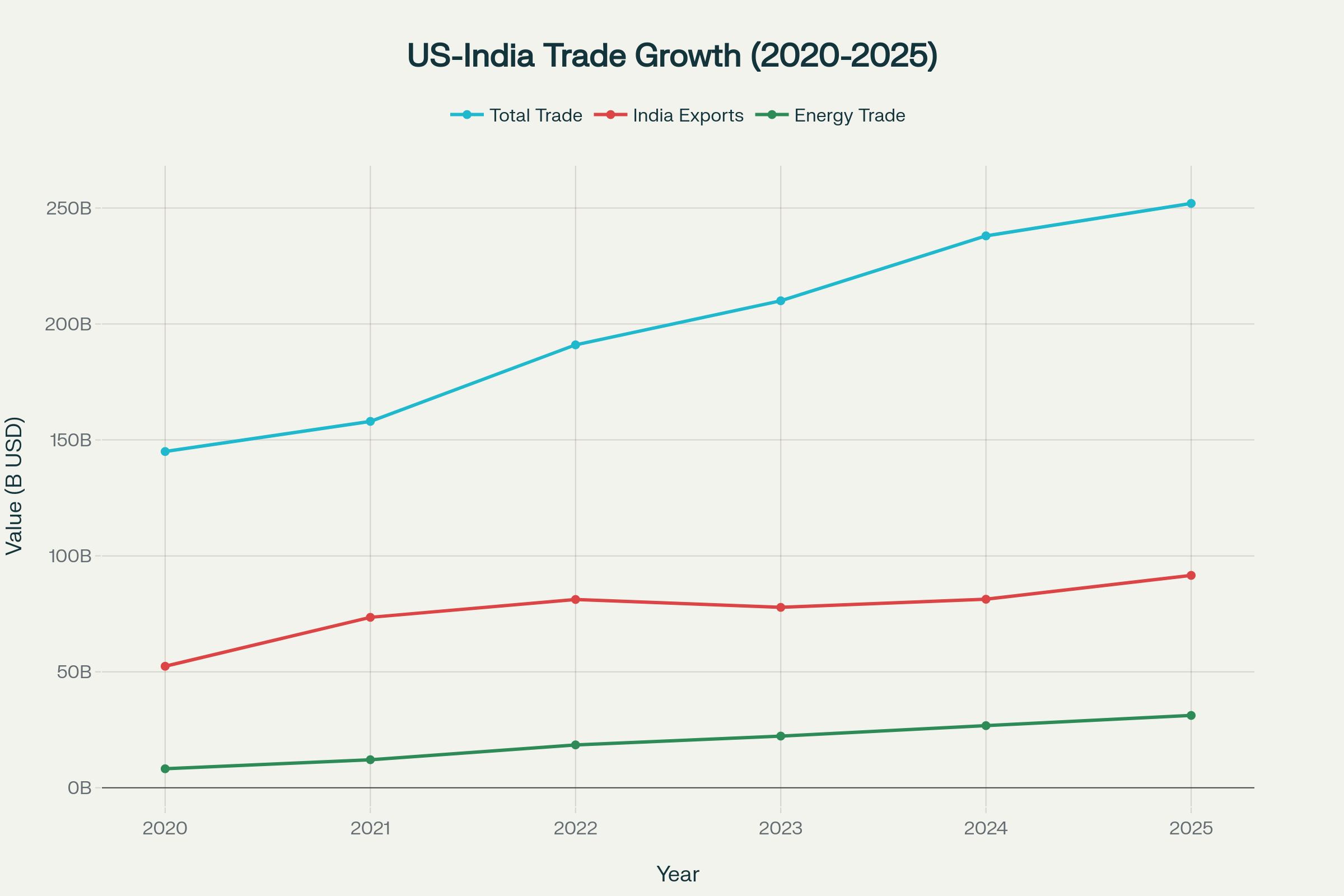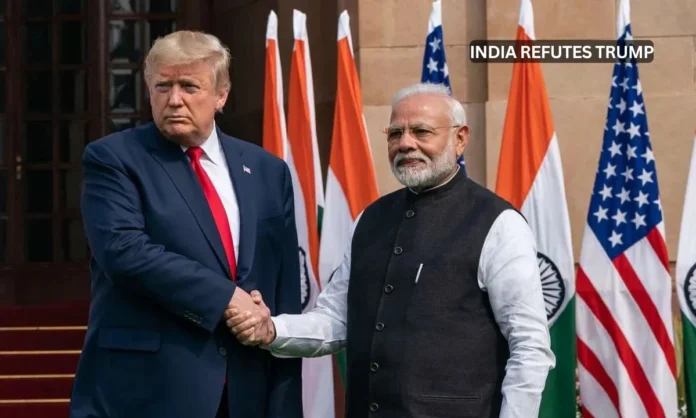Key Highlights:
- India categorically denied any telephonic conversation between Prime Minister Modi and President Trump regarding Russian oil imports
- Ministry of External Affairs reaffirmed India’s energy policy prioritizes consumer interests and national energy security over foreign political pressure
- Trump phone call claims denied by Indian officials create diplomatic contradiction between strategic partners amid energy cooperation discussions
Diplomatic Dispute Emerges Over Energy Claims
India firmly rejected claims made by US President Donald Trump that Prime Minister Narendra Modi had assured him during a recent phone call that the country would stop purchasing Russian oil. The Ministry of External Affairs categorically stated that no such telephonic conversation between the two leaders took place, with Trump phone call claims denied creating a significant diplomatic contradiction between the world’s largest democracy and its strategic partner.
MEA spokesperson Randhir Jaiswal addressed the controversy during a media briefing, clarifying that “there has been no discussion between the Prime Minister and President Trump” regarding energy matters or any other bilateral issues. This direct refutation came after Trump made public statements at the White House claiming Modi had committed to halting Russian oil imports during what he described as a productive conversation, but Trump phone call claims denied by India expose the factual inaccuracy of these assertions.
Our response to media queries on comments on India’s energy sourcing⬇️
— Randhir Jaiswal (@MEAIndia) October 16, 2025
🔗 https://t.co/BTFl2HQUab pic.twitter.com/r76rjJuC7A
The diplomatic dispute highlights the complex nature of India-US relations, particularly regarding energy security and geopolitical alignments in the current global landscape. With Trump phone call claims denied by Indian officials, questions arise about the accuracy of presidential statements and the potential for misunderstandings in high-level diplomatic communications.
India’s Energy Policy Framework Remains Unchanged
- Consumer Interest Priority: India maintains that safeguarding consumer interests in volatile energy markets drives all import decisions
- Twin Goals Strategy: Stable energy prices and secured supplies form the cornerstone of national energy policys3.amazonaws
India reiterated its established energy import framework following the Trump phone call claims denied controversy and unsubstantiated assertions about Russian oil cessation. The Ministry of External Affairs issued an official statement emphasizing that “India is a significant importer of oil and gas” and has consistently prioritized “safeguarding the interests of the Indian consumer in a volatile energy scenario”.
The government’s energy policy operates on twin principles of ensuring stable energy prices and secured supplies, which includes “broad-basing our energy sourcing and diversifying as appropriate to meet market conditions”. This approach reflects India’s pragmatic stance on energy procurement, prioritizing economic considerations over political pressure from international partners, especially after Trump phone call claims denied reinforced India’s sovereignty over energy decisions.
MEA officials confirmed that India’s import policies remain “guided entirely by this objective” of consumer protection rather than foreign diplomatic demands. The statement reinforced India’s autonomy over energy choices while maintaining openness to expanding cooperation with various suppliers, including the United States, regardless of Trump phone call claims denied creating temporary diplomatic friction.

India’s Crude Oil Import Sources: Dramatic Shift Toward Russian Supplies (2020-2025)
Russian Oil Trade Statistics and Current Reality
| Import Metric | 2024 Data | 2025 YTD | Market Share |
|---|---|---|---|
| Russian Oil Volume | 88 million tonnes | 65 million tonnes | 36% of total imports |
| Daily Average | 1.8 million bpd | 1.6 million bpd | Largest single supplier |
| Discount Rate | $8-12 per barrel | $3.5-5 per barrel | Cost advantage maintained |
| Total Import Value | $45.2 billion | $31.8 billion | Major trade component |
India’s energy relationship with Russia has significantly evolved since the Ukraine conflict began, with Russian oil becoming the country’s largest single supplier despite Trump phone call claims denied attempting to pressure policy changes. Current data shows India imported approximately 88 million tonnes from Russia in FY25, representing roughly 36% of the nation’s total crude oil imports of 245 million tonnes.
Russian crude maintained its position as India’s primary oil source, contributing about 1.6 million barrels per day in September 2025, which represents a 34% market share. This substantial volume reflects the economic advantages of Russian oil, which historically offered discounts of USD 19-20 per barrel in 2023, though these have narrowed to USD 3.5-5 per barrel currently, providing continued cost benefits even as Trump phone call claims denied highlight diplomatic tensions.
The trade relationship has proven economically beneficial for India, with bilateral energy trade valued at $52.73 billion during 2024 according to UN COMTRADE data. These imports have helped India maintain energy security while managing costs for consumers, aligning with the government’s stated policy objectives that remain unchanged despite Trump phone call claims denied creating international attention.
US-India Energy Cooperation Prospects and Challenges
- Bilateral Growth: India’s exports to US rose 13.3% to $45.82 billion in H1 FY26 despite 50% tariffs on select products
- Energy Expansion: India can import additional $12-13 billion worth of US crude oil and natural gas without refinery modifications
- Trade Resilience: Bilateral energy trade reached $31.2 billion in 2025, up from $26.8 billion in 2024s3.amazonaws
Despite the diplomatic friction over Trump phone call claims denied and energy policy disagreements, India maintains its commitment to expanding energy cooperation with the United States. The MEA confirmed that “we have for many years sought to expand our energy procurement” from America, which “has steadily progressed in the last decade”.
US oil and gas export value to India reached $12.5 billion in 2022, with bilateral energy commodities and equipment trade totaling $31.2 billion in 2025, demonstrating substantial commercial potential despite Trump phone call claims denied creating temporary diplomatic tensions. Indian officials indicated the country can import an additional $12-13 billion worth of US crude oil and natural gas without altering refinery configurations, suggesting significant room for growth.
The Trump administration has expressed interest in deepening energy cooperation with India, with ongoing discussions about expanding bilateral energy trade. However, India’s approach remains pragmatic, emphasizing that energy procurement decisions will continue to be based on market conditions, price competitiveness, and consumer interests rather than political considerations, as reinforced by Trump phone call claims denied maintaining policy independence.

US-India Bilateral Trade Growth: Energy Cooperation Expansion Despite Diplomatic Tensions
Concluding Assessment
The diplomatic contradiction between President Trump’s unsubstantiated assertions and India’s official response, with Trump phone call claims denied categorically, reveals the complexities of international energy diplomacy in an interconnected global economy. India’s firm stance on maintaining energy policy autonomy demonstrates the country’s commitment to balancing strategic partnerships with national economic interests, especially when Trump phone call claims denied protect sovereignty over critical policy decisions.
While the Trump phone call claims denied episode created temporary diplomatic tension, the underlying US-India energy relationship continues to show promise for expansion, with bilateral trade reaching record levels despite political friction. India’s approach of diversifying energy sources while prioritizing consumer interests reflects a mature energy strategy that serves both economic and strategic objectives, regardless of external political pressure.
The incident underscores the importance of accurate diplomatic communication and the potential consequences of public misstatements in international relations, with Trump phone call claims denied highlighting the need for factual dialogue. As both nations navigate complex global energy markets, maintaining truthful diplomatic discourse will be essential for advancing their substantial bilateral energy cooperation potential, ensuring that future claims are substantiated rather than requiring official denials.


